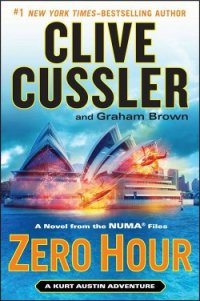Restless - Boyd William (читаемые книги читать онлайн бесплатно TXT) 📗
She burned her Margery Atterdine passport, leaf by leaf, and dropped the ashes here and there all over Battersea. She was now Lily Fitzroy, at least for a short while, and she had almost ?34, all told, to her name once she had converted her remaining Canadian dollars and added them to the money she had hidden beneath the floorboards.
She lived quietly in Battersea for a week or two. Elsewhere in the world the Japanese seemed to be moving effortlessly through South-East Asia and there were new reverses for the British forces in North Africa. She thought of Romer every day and wondered what he was doing, confident that he'd be thinking of her too. The air raids were still coming in but without the regularity and remorseless ferocity of the Blitz. She spent a few nights in Mrs Dangerfield's Anderson shelter at the bottom of her narrow garden, where she regaled her with tales of her fictitious life in the USA, making Mrs Dangerfield's mouth open and eyes widen at the news of the wealth and profligacy of America, its superabundance and democratic generosity. 'I would never have come back myself, dear,' Mrs Dangerfield said with sincere feeling, reaching for her hands. 'A few days ago you were having cocktails in the Asporia-Waldorf, or whatever it's called – now you're sitting under a useless piece of tin in Battersea, being bombed by the Germans. I would've stayed put if I'd been you. Better off there, my darling, than in sad old London, blown to blazes.'
She knew this curious limbo couldn't last and indeed it began to chafe on her. She had to take action and get information, however meagre. She had escaped, she was free, she had her new name, passport, ration book and coupons but she was aware she was only drawing breath, pausing for a while: there was still some distance to run before she could truly feel at ease.
So she went to Electra House on the Embankment and spent two days watching the employees arrive and depart before she spotted Alfie Blytheswood emerging one evening. She followed him home to his house in Barnet and the next morning followed him from home to work.
She sat in her room in Battersea, thinking over the news Blytheswood had given her. Morris, Angus and Sylvia dead – but she had been destined to be the first. She wondered if her overturning of the Las Cruces operation had in a way made the others' deaths inevitable. Romer couldn't risk anything more, now Morris had exposed him as a ghost, and there was also the fact that Eva knew, also. What if Morris had hinted to Sylvia or, more likely, Angus? Angus's mood had been odd those last days – perhaps Morris had hinted at something… Romer couldn't risk it, in any event, and so he began rolling up AAS Ltd – carefully, guilefully – leaving no trace of his hand in the matter. Morris's suicide, then a leak of information about a Sunderland flight from Lisbon to Poole – date and time – and a high-ranking soldier on board as cover… It spoke of real power, she realised, a huge and powerful network with many intermediate contacts. But Eva Delectorskaya was still unaccounted for and she began to wonder if the chain of identities she had acquired for herself could be extended ad infinitum. If Romer could engineer the shooting-down of a flying boat in the Bay of Biscay it wouldn't take him long to find Lily Fitzroy – a name he already knew. Only a little time would elapse before, one way or another, via the cumbersome but dogged bureaucracy of wartime Britain, the name of Lily Fitzroy surfaced. And then what? Eva knew all too well how these things turned out: a motor accident, a fall from a high building, a black-out robbery turned to murder… She had to break the chain, she realised. She heard Mrs Dangerfield climbing the stairs.
'Fancy a cup of tea, Lily dear?'
'Lovely, yes please,' she called.
Lily Fitzroy, she realised, had to go.
It took her a day or two to calculate how it might just be done. In bombed-out London, she logically supposed, people must constantly be losing everything they owned. What did you do if your block of flats collapsed and burned while you were cowering in your basement shelter in your underclothes? You stumble out, dressed in pyjamas and dressing gown, into the dawn after the 'all clear', to find that everything you possessed had been incinerated. People had to start again, almost as if they were being reborn: all your documentation, clothing, housing, proofs of identification had to be re-acquired. The Blitz and now these night raids had been going on since September 1940, over a year, now, with thousands and thousands of dead and missing. She knew black-marketeers exploited the dead, kept them 'alive' for a while to claim their rations and petrol coupons. Perhaps there was an opening for her, here. So she began to scan the newspapers looking for accounts of the worst attacks with the biggest number of casualties – forty, fifty, sixty people killed or missing. A day or two later names would be printed in the papers and sometimes photographs. She began to look for missing young women about her age.
Two days after the encounter with Blytheswood there was a big raid over the East End docks. She and Mrs Dangerfield went down the garden to the shelter and sat it out. On clear nights the planes often followed the meandering line of the Thames upriver looking for the power stations at Battersea and at Lots Road in Chelsea, unloading their bombs somewhere in the general vicinity. The residential areas of Battersea and Chelsea, consequently, received more bombing than they might ever have expected.
The next morning on the wireless she heard the news of the raids on Rotherhithe and Deptford – whole streets flattened, an entire housing estate evacuated, blocks of flats burned out and destroyed. In the evening paper more details were supplied, a small map printed of the most grievously damaged areas, the first lists of the dead and missing. She was looking – ghoulishly, she knew – for whole families, groups of four or five people with the same surname. She read of a charitable-trust estate in Deptford – three blocks almost totally destroyed, a direct hit on one, Carlisle House – eighty-seven people feared dead. The West family, three names, the Findlays – four names, two of them young children, and worst of all the Fairchilds with their five children: Sally (24), Elizabeth (18), Cedric (12), Lucy (10) and Agnes (6). All missing, all believed dead, buried under the devastation, hope for survivors remote.
Eva caught a bus to Deptford the next day and went in search of Carlisle House. She found the usual fuming moonscape of dereliction: hills of brick rubble, teetering cliffs of walls and exposed rooms, gas mains still burning through the tumbled masonry with a pale wobbly light. Wooden barriers had been erected around the site and were manned by police and ARP volunteers. Behind the barriers small crowds gathered and looked forlornly on, talking about the senselessness, the mindlessness, the agony and the tragedy. In a nearby doorway Eva took out her passport and then she walked along the line of barriers as far from the crowds as possible and as close as she could get to a flaring gas main. The winter evening was drawing in quickly and the pale flames were becoming more lurid and orange. Darkness meant another raid, possibly, and the muttering groups of neighbours, survivors and spectators began to drift away. When she was sure no one was looking she gently threw her passport into the heart of the flames. For an instant she saw it flare and shrivel and then it disappeared. She turned and walked quickly away.
She went back home to Battersea and told Mrs Dangerfield, with a gallant sigh, that she had a new posting – ' Scotland again' – and had to leave that very evening. She paid her two months, rent in advance and left blithely, happily. At least you'll be away from these raids, Mrs Dangerfield observed enviously, and pecked her goodbye on the cheek. I'll telephone when I'm coming back, Eva said, probably March.



